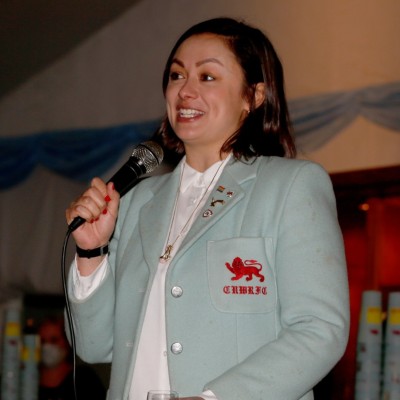Written by Jess Tayenjam, self-employed in the innovation, cultural transformation, and new product/service development industry
Jess is also a graduate of the Masters in Social Innovation and a Fellow of Social Innovation.
Could I be a social innovator?
I joined the Master of Studies (MSt) in Social Innovation in 2018 from a background in corporate innovation, both as a consultant in retail and financial services, and working in-house on new product development for a private lottery company.

The gambling industry is probably not the place people expect to find social innovation, but it is where I found my ‘why’ for applying to the programme. Working with charity partners like UNICEF and The Global Fund to understand how lottery business models could be applied to their fundraising challenges showed me how my skills in human-centred design, strategy and operations could be applied for social good.
The deciding factor for me in joining the MSt was the CURUFC & CJBS Social Innovation Studentship, a scholarship without which I would not have been able to fund my studies. I started playing rugby as an undergraduate at Cambridge, earning my Blue in 2011, and had remained involved in Cambridge University RUFC as a volunteer after graduating.
Rugby had been a big part of my life as a sport and a community, but I had not put a lot of thought into the ways in which sport can be a force for social change. The MSt offered the chance to bring my personal and voluntary interests closer to my professional and academic pursuits.
Remembering I like to use my brain
One of the best things I took from the MSt in Social Innovation – and one of the most embarrassing to admit – is that it reminded me to think critically and that I enjoy critical thinking. In a fast-paced work environment with constant deadlines and deliverables, it is unfortunately very easy to forget to pause, ask the deeper questions and look at the broader context. The MSt gave me the space and academic resources to do just that.
As an experienced commercial qualitative researcher, I also appreciated that the MSt helped me to develop my applied skills further. Conducting my dissertation research enabled me to deep dive on a topic of personal significance – women’s entrepreneurship as an approach to conflict transformation – while practicing new tools and techniques.
However, the most important thing I have gained from the MSt extends well beyond the classroom: the incredible relationships I have made through the programme. I have met some of my closest friends and business collaborators through the Cambridge Centre for Social Innovation and am excited about the opportunities for personal and societal change we are discovering together.
Translating the MSt into everyday practice
Working with BlueBridge Education, a short course provider for international high school and university students and supporter of the Cambridge Centre for Social Innovation, I have had the opportunity to bring social innovation directly into practice. Teaching students from around the world about wicked problems, systems thinking, and the range of approaches to innovation, it is a delight to see the young people in my classroom light up as they engage critically with issues that they’re passionate about.
After completing the MSt, I took on the role of Co-Chair of Cambridge University RUFC alongside fellow alumnus Nick Koster (cohort 2, 2017). While I knew Nick through rugby, our friendship was built on the MSt. Our shared time on the programme helped us to align our ideas and articulate our vision for a more sustainable, more inclusive club. I miss Nick every day, and I can’t wait to see the great people and impact that are supported through the MSt in Social Innovation award in memory of Nick Koster.
The master’s programme has also been a catalyst for my own personal growth. Thinking critically about the systems in which I participate and being part of a community of social engaged innovators has expanded my perspectives on what work I do and how. I have been able to transition from full time corporate roles into a portfolio career of meaningful projects, bolstered by my knowledge and network from the MSt.
What next?
I am honoured to join the Cambridge Centre for Social Innovation as a Practice Fellow. I am particularly interested in how we can continue to grow our engagement with industry, connecting our world-leading research and teaching to practitioners in a range of markets. I’m already having some great conversations with private sector business leaders about the growing role of social impact in their day-to-day work, and I look forward to many more over the coming months.
As a Fellow of the Centre, I am also involved with Cambridge Social Ventures. At the recent Cambridge Social Ventures Weekend, I was so impressed by the passion, knowledge and breadth of ideas brought by the more than 40 entrepreneurs present.
Lastly, I am excited to support the next round of CURUFC and Nick Koster memorial scholars. Applications for the Master of Studies in Social Innovation open in September each year. If you are involved in rugby, please consider applying for the CURUFC studentship, and if you are living or working in South Africa, do look at the Nick Koster award.
And throughout it all, I am sure I will continue to enjoy myself. I have learned a lot through the MSt and I have worked hard, but I have also had a lot of fun! Even when the world seems to be an increasingly dark place, I hope that we can find joy and solace in developing new ways to tackle social issues and creating greater bonds amongst us.


Leave a Reply